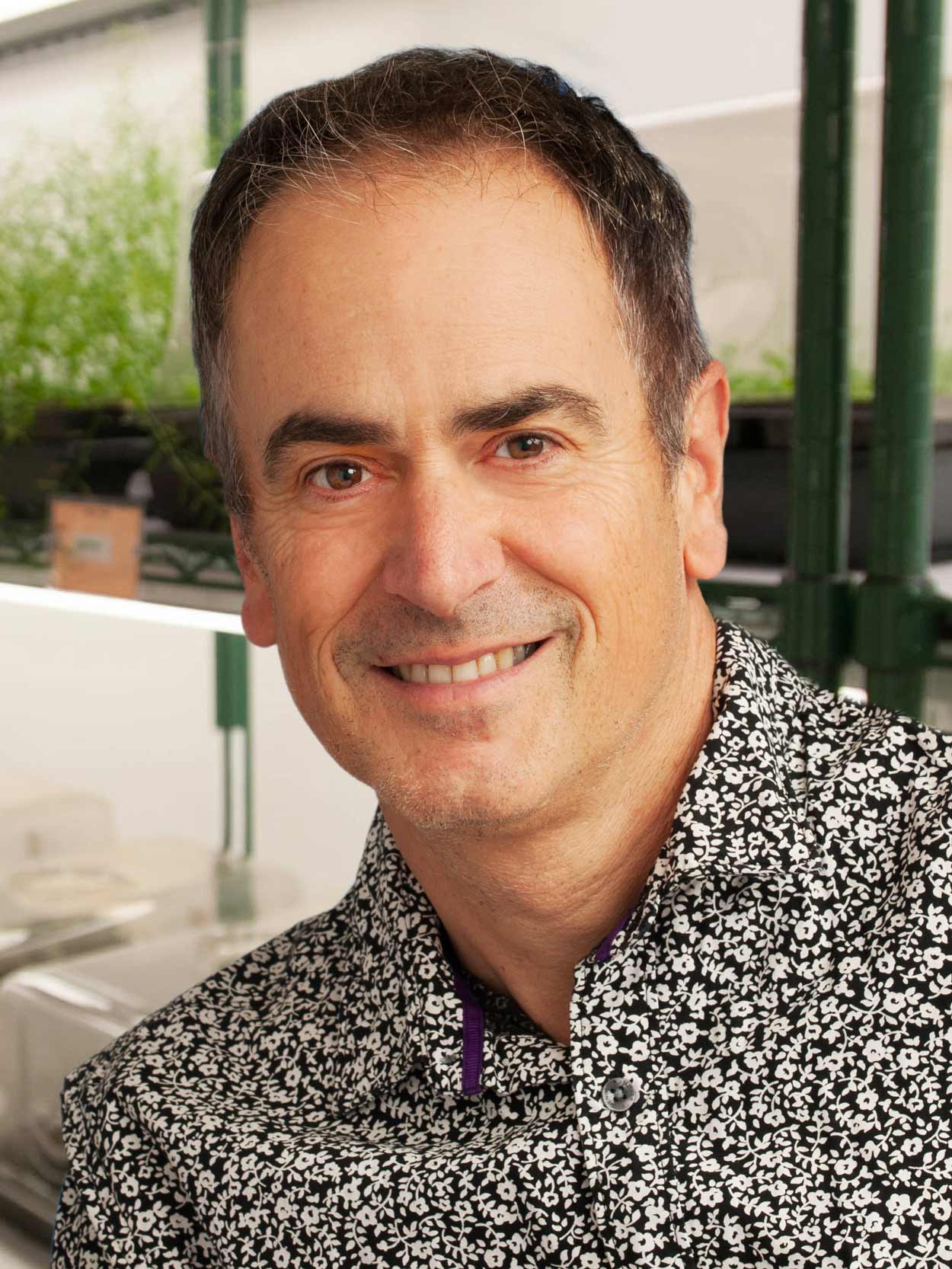Julian Schroeder Awarded International Prize for Advances in Plant Research
Khalifa International Award recognizes agricultural innovation
March 11, 2019
By Mario Aguilera

UC San Diego Distinguished Professor Julian Schroeder has been awarded a prestigious international prize for his research achievements in plant drought and salt tolerance, as well as research on improving the water use efficiency of plants.
Schroeder received the “Khalifa International Award for Date Palm and Agricultural Innovation” during a March 10 award ceremony in Abu Dhabi, United Arab Emirates.
According to the organization, the award was established “in recognition of the outstanding efforts and contributions made by both individuals and institutions in the field of agricultural innovation and date palm and to encourage and motivate them to exert further efforts towards upgrading the agricultural sector and date palm tree.” Award winners are selected by an international scientific committee.
Schroeder, the Novartis Chair in Plant Sciences in the Division of Biological Sciences, pioneered the characterization of ion channels in higher plants. His laboratory also conducted groundbreaking research in identifying the basic molecular mechanisms by which plants respond to and mount resistance to drought and salinity stress, and on how plants regulate water loss, in response to the continuing rise in the atmospheric carbon dioxide concentration.
His laboratory’s research on heavy metal stress led to the co-discovery of key genes encoding central heavy metal transporters and detoxification enzymes in plants. Such basic research can provide tools for engineering plants for environmental remediation, or “bioremediation,” of heavy metal removal from soils. His laboratory has conducted outreach activities in disadvantaged areas such as Southeast San Diego to test edible plant tissues at urban garden sites and some were found to be at risk for heavy metal consumption. Led by Keith Pezzoli, a teaching professor with the Urban Studies and Planning Program, contaminated soils were then replaced by clean soils and crops re-tested, as part of community efforts to reduce exposure to such risks.
A member of the Section of Cell and Developmental Biology, Schroeder was elected to the U.S. National Academy of Sciences in 2015. In 2017 he was elected to the German National Academy.
Schroeder has served as president of the American Society of Plant Biologists, a professional society with more than 3,000 members devoted to the advancement of plant sciences. He directed the Plant Systems Biology Graduate Training program at UC San Diego and the Salk Institute for Biological Studies. He received the Charles Albert Shull Award from ASPB, a Presidential Young Investigator Award from the National Science Foundation, a Deutsche Forshungsgemeinshaft Heinz-Maier-Leibnitz Research Prize and the Blasker Award in Environmental Science and Engineering. He is a Fellow of the American Association for the Advancement of Science.
